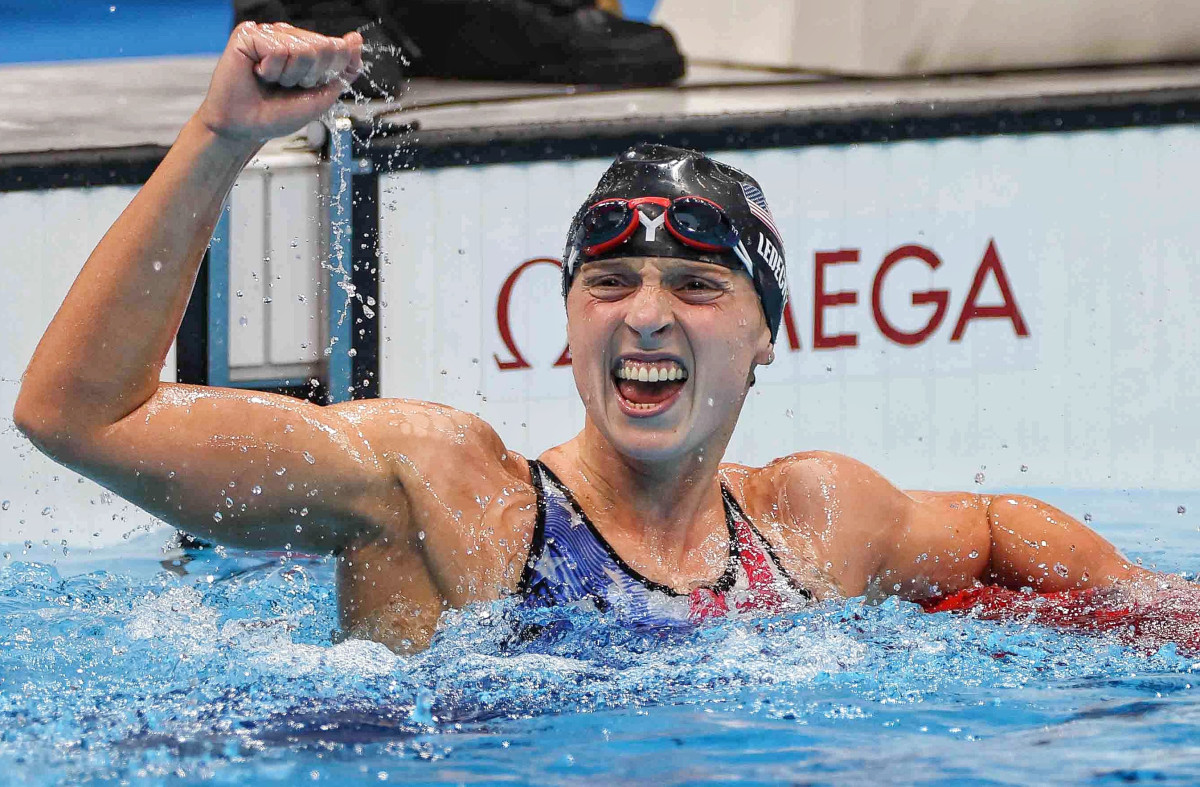
Photo Credit: Getty Images
It's nothing for Katie Ledecky to venture into unknown waters. Similar to how the swimmer created history in the 800m freestyle at the previous four Games, becoming the most decorated American female Olympian of all time and the first woman to win four gold medals in the same event in Paris in 2024.
However, Ledecky started a private deep dive into yet another novel area a few years ago: overcoming a health challenge.
At the World Aquatics Championships in Kazan, Russia, in 2015, it got its start. Ledecky set three world records and won five gold medals, but it wasn't all fun and games. After her last race, the athlete reported in her memoir Just Add Water: My Swimming Life, that she felt "extremely hot and lightheaded" at a team dinner. Chalking it up to being exhausted from her meetings, she didn’t worry too much about it.
Ledecky came back to the United States to continue his preparations for the Rio de Janeiro Olympics in 2016. Once more, though, she sensed something was wrong.
The 27-year-old wrote, "It was... weird," in her book, which was published in June. "I was swimming all right. However, I was incredibly inconsistent. After a few successful practices, I would experience a day or two of complete exhaustion. There were days when I was constantly dizzy. I recall finding it difficult to return to the locker room after practice. In training, every swimmer experiences highs and lows, but to be this stressed out? I was motivated to work hard. All I had was juice. I kept asking myself, Am I sick? If that's the case, with what?”
Ledecky stated that she was advised to see a specialist at Johns Hopkins in her native Maryland by her former coach, Bruce Gemmell. She was ultimately diagnosed with postural orthostatic tachycardia syndrome (POTS), which is defined as "a condition in which people experience a fast heart rate, fatigue, or other symptoms when they go from sitting or lying down to standing" by New York Presbyterian's Health Matters.
Ledecky wrote in her autobiography, "When I stand, I pool blood in the vessels beneath my heart because I have POTS." My body then releases more adrenaline or norepinephrine, adding to the stress on my heart and causing it to beat more quickly. can therefore result in fatigue, fainting, and dizziness.
The 14-time Olympic medalist altered her diet as a result of the illness.
"I could treat my POTS nutritionally, which was good news," she continued. "I needed to drink more water and consume more sodium. Additionally, research indicates that alleviation can be obtained from seated aerobic exercise, such as swimming and core strengthening. which is rather humorous. What are the chances that increasing swimming would be the recommended kind of exercise for my specific illness?
Ledecky also stated that she was "relieved" to receive answers at last, although she chose not to immediately disclose her diagnosis to the public.
"I didn't want Rio or Team USA to become associated with something that was, quote, 'wrong' with me," she wrote. "I had no desire to cause trouble or to distract myself. I simply wanted to treat my condition as best I could and get back to going hard in the pool. Gradually, following the doctor's orders, I started feeling better.”
















